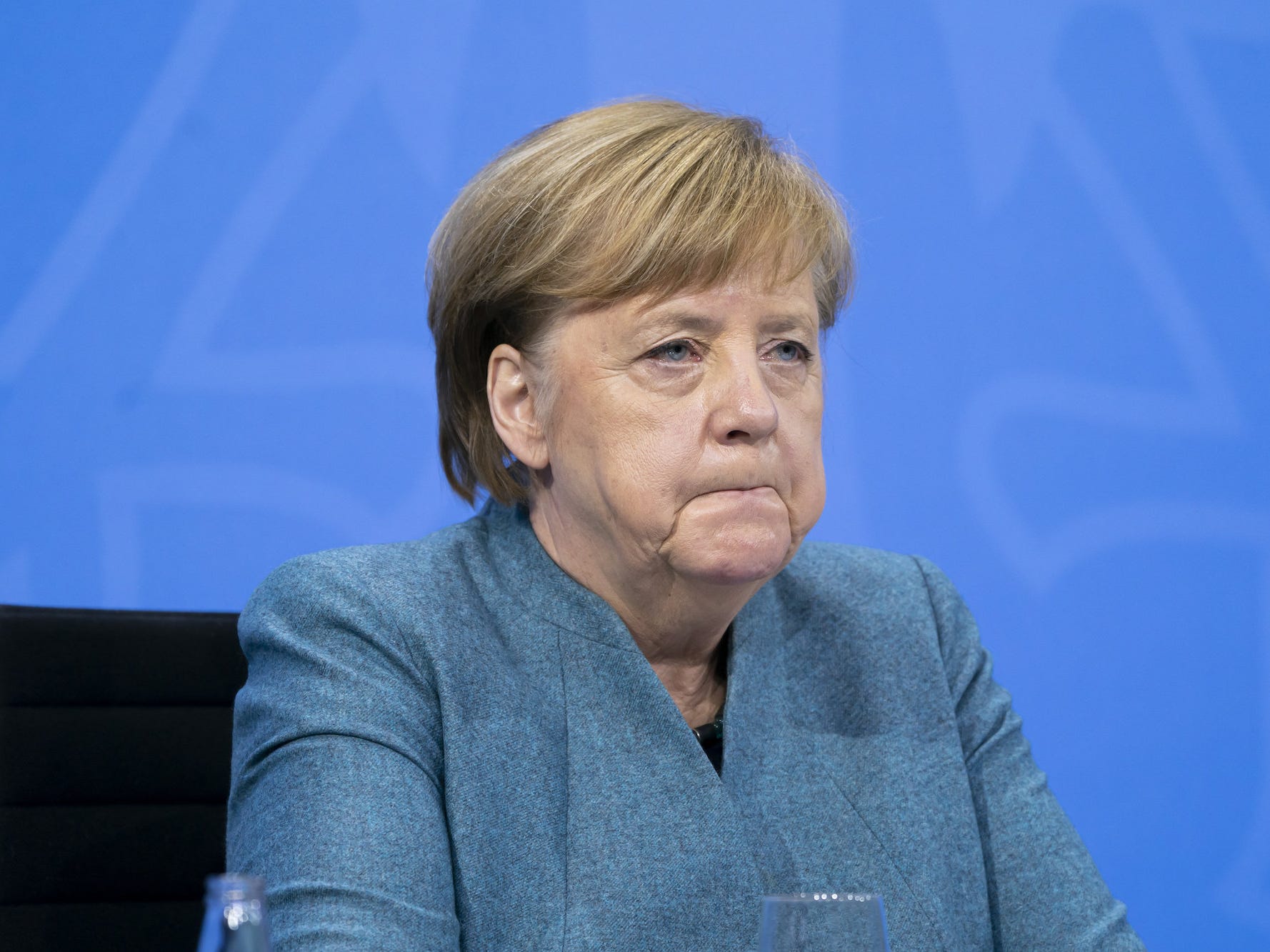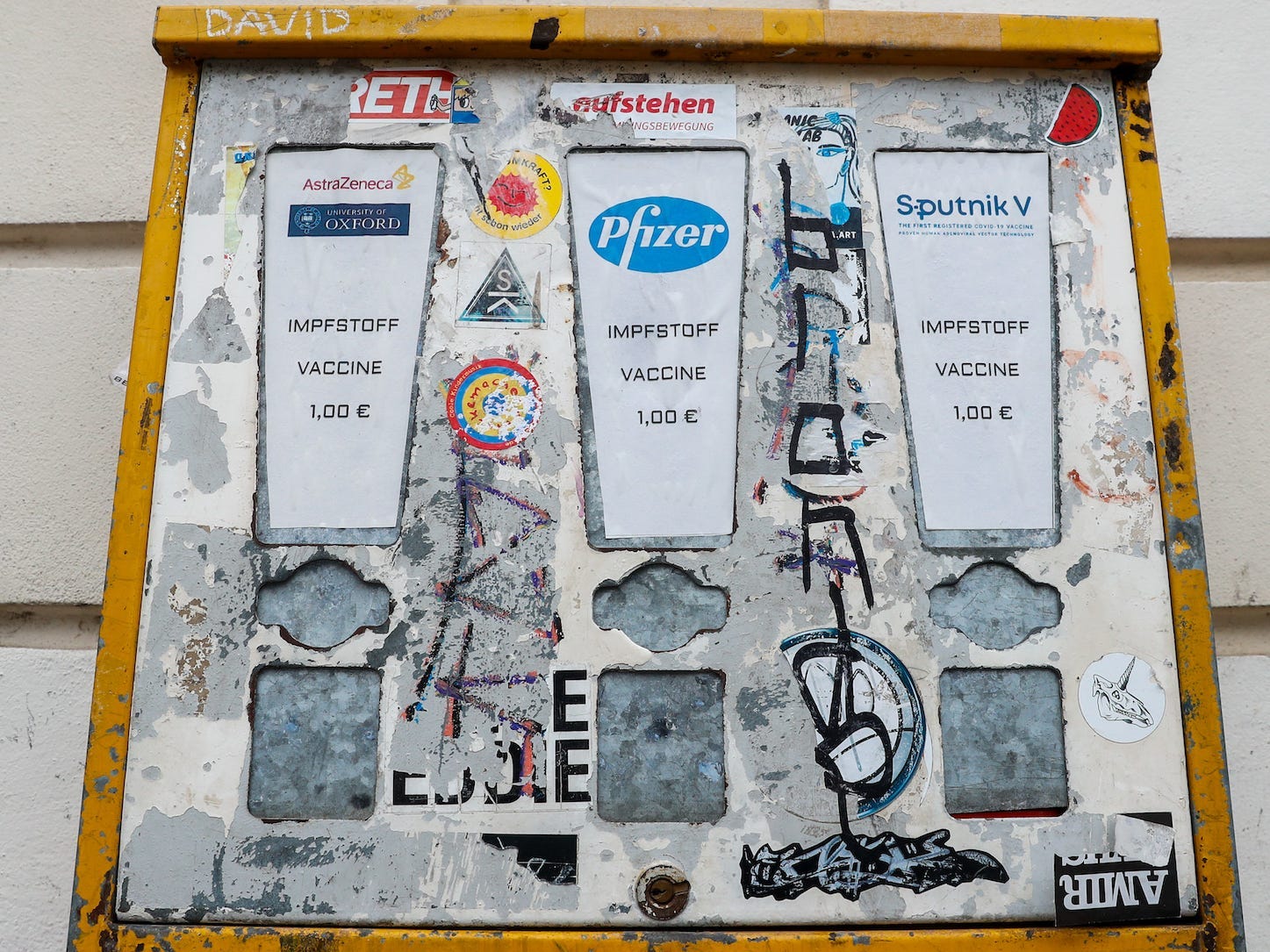
Henning Schacht – Pool/Getty Images
- Germany is enhancing its efforts to tell people the AstraZeneca COVID-19 vaccine is safe and effective.
- The German vaccine rollout has been complicated by people avoiding that jab.
- It appears to be part of a trend, reported by Insider, of trying to get the Pfizer shot instead.
- Visit the Business section of Insider for more stories.
Officials in Germany are defending the AstraZeneca vaccine and pushing back against people who are avoiding taking in the hope of getting a Pfizer jab instead.
Regulators have approved both shots, but differing rates of efficacy from clinical trials appears to have driven many to hold out for the Pfizer jab, which reported a 95% effectiveness compared to 60% for AstraZeneca.
Experts say that directly comparing the figures is misleading, and not a good reason to refuse the AstraZeneca jab – but the message has failed to reach much of Germany’s population.
Only 187,000 doses of the AstraZeneca vaccine have been given so far in Germany, Reuters reported on Monday. The country was expecting to have delivered 1.5 million doses of the vaccine by end of last week.
One vaccine site in Berlin, which only distributed the AstraZeneca jab, has seen fewer than 200 people a day arriving for 3,800 appointments, The Times of London reported on Monday.
People are reluctant to take the vaccine because of skepticism about its efficacy, a head of a vaccination center told Business Insider Deutschland, Insider's sister publication in Germany.
One German expert told Die Welt that "really disastrous communication" was to blame for the widespread skepticism of the vaccine.
German Health Minister Jans Spahn faced controversy when he was reported to have said to sources that the vaccine was only 8% effective in people over the age of 65, German newspaper Handelsblatt reported on January 29.
Spahn has disavowed a report, saying the paper had "confused" the data he was presenting.
There is also confusion about the vaccine's performance. AstraZeneca vaccine's efficacy has been reported to be 60% in clinical trials, lower than competitors Pfizer and Moderna, who have reported efficacy over 90% after their respective trials.
However, the data is not comparable, experts have said, and real-world data is starting to show AstraZeneca vaccine's effectiveness in countries where it has been rolled out.
Anecdotal reports of flu-like side effects from the first jab of the vaccine have been coming out of France and Sweden, which in some cases temporarily took health workers out of commission for a day.
The German government and local health experts are now actively trying to quash confusion about the vaccine efficacy and safety.

Gerald Matzka/picture alliance via Getty Images
"The vaccine from AstraZeneca is both safe and highly effective" Angela Merkel's chief spokesman Steffen Seibert said in a tweet on Monday.
On Wednesday, the most senior official in the EU, Ursula von der Leyen, also defended the AstraZeneca shot.
von der Leyen, President of the European Commission and a German who belongs to Merkel's CDU party, told the newspaper Augsburger Allgemeine that she would "take the AstraZeneca vaccine without a second thought, just like Moderna's and BioNTech/Pfizer's products".